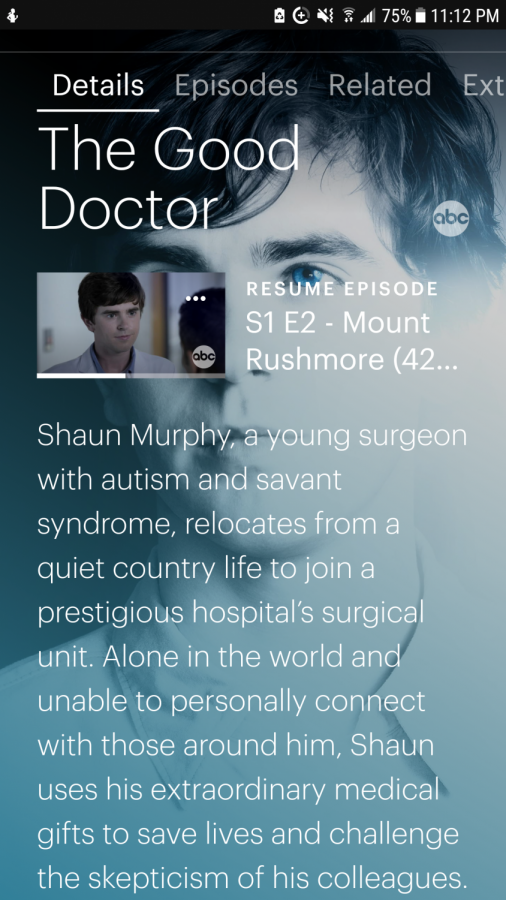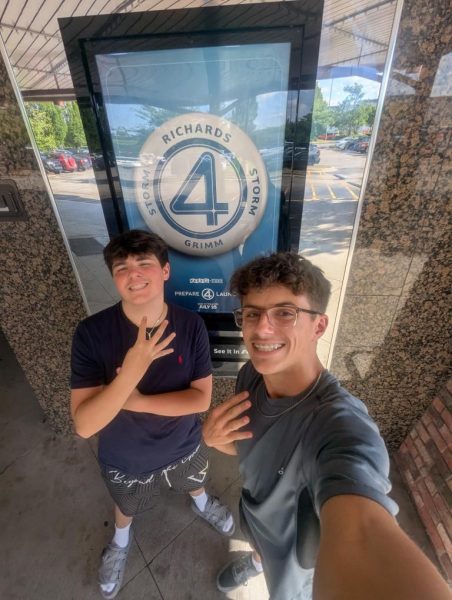Counterattacking Marginalization: The Good Doctor review
A lot of people know Freddie Highmore as Norman Bates in the television show Bates Motel, but fans of Highmore are given a chance to see him in a different, non-thriller-y way in The Good Doctor.
The Good Doctor is a show about a man, Shaun Murphy, who has grown up being on the spectrum of autism who wants to become a doctor. He has been looking forward to this since he was small and his brother got into an accident. He has been offered a place at San Jose St. Bonaventure Hospital by Dr. Glassman.
Within the first three minutes of the show’s pilot, we are shown an unfortunate situation, in which a child is horribly injured and Shaun’s medical skills are put to the test. Meanwhile, the hospital’s board is debating the allowance of Shaun practicing at San Jose due to his disability.
This is where my opinion comes into play. I thought the pilot was a spectacular one that tackled the prospect of an autistic doctor and how he and the people around him are able to handle practicing medicine under his condition. It’s inspiring to see someone on screen that I otherwise would not see much of in my own life because I am not in the same situation, nor do I want to become a doctor. And already within the first part, people are apprehensive about his judgment and how to treat him, which I find very realistic, seeing as–unfortunately–this is the case in the real world, too, because some people do not have the proper knowledge about disabilities and other minority human matters. I enjoyed this diversity and will enjoy seeing it hopefully flourish and teach me in the future episodes.
It was also interesting seeing the hospital/doctor thing played out so differently than it has been before. In shows like Grey’s Anatomy and soap operas–you know the kind your mother watches, (or at least mine used to; maybe still does–), the doctors are often in very dramatic relationships with patients and one another, and sometimes the depictions are not very realistic. But with this show, I felt a nice contrast to this regularity. There are some portrayals of relationships between the doctors but they do not seem as important as the whole story.
Within the first episode, I was overwhelmed with emotions. On one hand, you deal with the present events, which can be very intense, but on the other, you are treated to flashbacks of Shaun’s past with his brother. These flashbacks are very important to our main character’s development and in my case, may make the audience teary eyed.
I love the way the directors chose to show how Shaun’s brain works. While I cannot comprehend how someone with autism does see these things or say this way is true to how all autistic humans see the world, but in the show’s case, it is enticing and intriguing and quite beautiful in a way that reminisces on the BBC’s Sherlock adaptation.
I think Highmore did a great job in depicting an autistic man, but I kind of wish they had actually casted an actor with more of a history in the realm of autism.
The whole cast did a great job with their roles, meaning they actually made me feel what they were feeling and had me heartbroken from the first scene.
I think this show, if done right, could be a learning experience for anyone who choose to watch it. I know I sure will try to keep up with the show in its continuity.
Warnings: neglect/child abuse; animal abuse/death (in pilot at least); graphic images, such as wounds and surgery; death; prejudice









